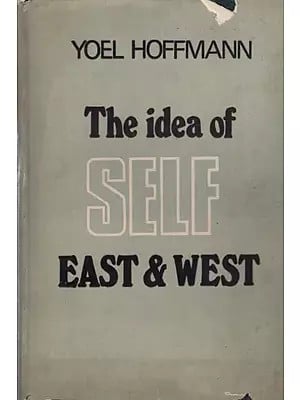The Idea of Self-East and West: A Comparison between Buddhist Philosophy and the Philosophy of David Hume By Yoel Hoffmann
The Idea of Self-East and West: A Comparison between Buddhist Philosophy and the Philosophy of David Hume By Yoel Hoffmann
Hardcover
Couldn't load pickup availability
Book Description
Foreword
Comparative philosophy navigates the complexities of interpreting different philosophical traditions, often placing scholars in intellectually risky positions. Understanding a philosopher like David Hume, for instance, presents challenges even for those within his cultural context. Hume's ideas, left somewhat disordered, invite extensive debate among British philosophers. Yet, intriguingly, there are surface similarities between his dissolution of objects and selves and the perspectives of Theravada Buddhism. Both Hume and Theravada philosophers emphasize a dispassionate approach to life, valuing benevolence and moderation. While Hume described himself as mild and sociable, the Theravada monks appear disciplined and devoted, steeped in scripture and ritual. This raises questions about how such seemingly different thinkers can resonate on deeper philosophical levels.
Introduction
In the realm of East-West comparative philosophy, two distinct tendencies emerge. One perspective emphasizes differentiation, suggesting that Eastern thought embodies "religious mystical philosophy" while Western thought aligns with "critical rationalism," implying an insurmountable divide. Conversely, another viewpoint tends to overlook cultural nuances, overly highlighting similarities between the two traditions.
I propose that a balanced approach is essential for comparative studies. We should resist generalizations like "the mystical East" and "the rational West," while also avoiding excessive identification of similarities. Recognizing parallels in philosophical systems is relatively straightforward; uncovering the subtle differences in mood and methodology is a more nuanced task. By illuminating these distinctions, we can enrich our comparative analysis.
Philosophy, whether articulated by an individual or a group, reflects a particular way of engaging with the world. Philosophers strive to express their intuitively felt experiences through interconnected statements, collectively forming a philosophical system. The linguistic and cultural contexts of their time shape this expression.
When comparing an eighteenth-century British philosopher to ancient Indian thinkers, we must look beyond mere verbal constructs to grasp the underlying intuitions that informed their thoughts. To facilitate this exploration, I will present accounts of altered states of consciousness, including psychotic experiences and drug-induced insights, to bridge the gap between conceptual abstraction and fundamental intuition.
Share


